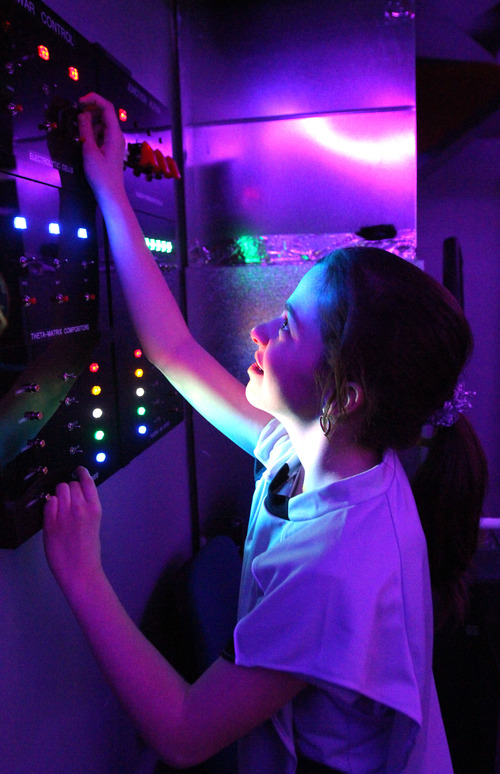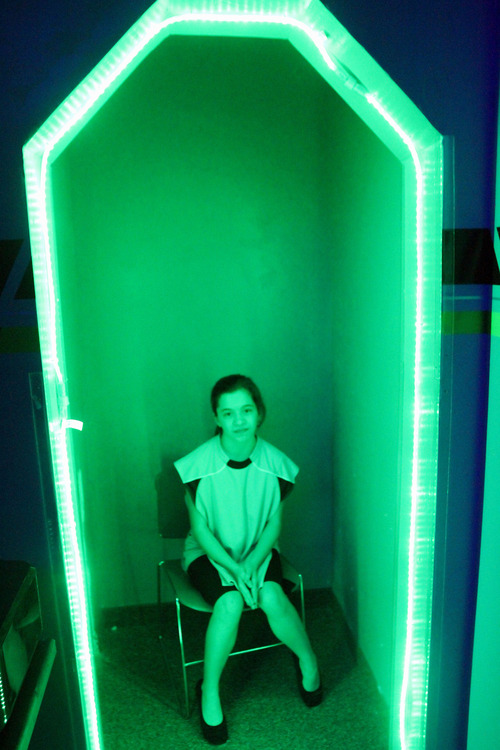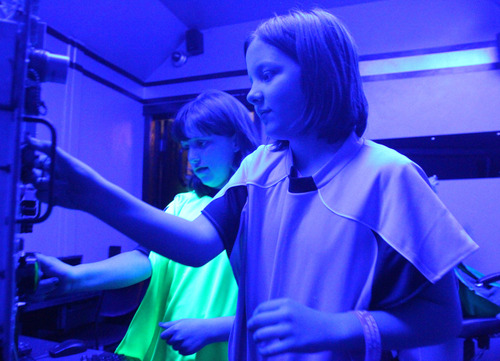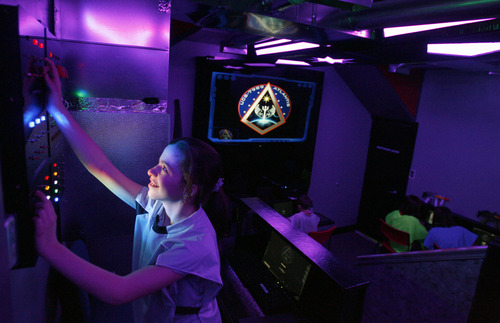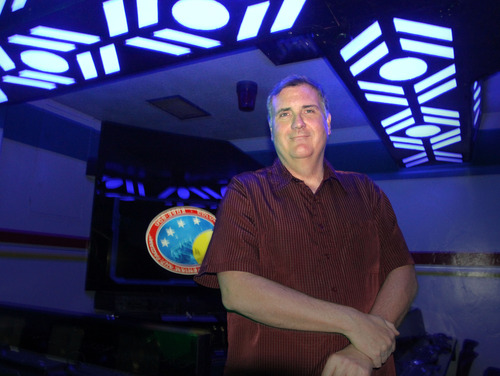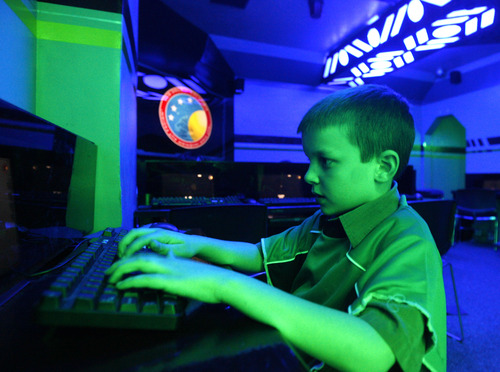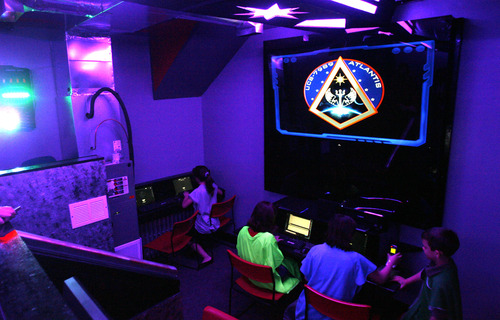This is an archived article that was published on sltrib.com in 2013, and information in the article may be outdated. It is provided only for personal research purposes and may not be reprinted.
Fans of The Christa McAuliffe Space Education Center — a favorite destination for school field trips in Utah — despaired when the Alpine School District began scaling back the program last year.
Worried about the future of the center, where kids perform simulated space missions to learn math, science, social studies and other subjects, some began planning their own versions. Now, three other space education centers are blasting off.
The Discovery Space Center, which has four simulators and hired much of the McAuliffe staff, opened earlier this month in Pleasant Grove.
The Farpoint Institute plans to fully open at Renaissance Academy charter school in Lehi in September 2014, though it already has an afterschool program and hopes to offer summer camp.
Organizers of a third program, to be called The Space Education Center, hope to open at Wilson Elementary School in Logan in June.
The creators of all three programs are people who cherished their experiences at the McAuliffe center.
"That these centers are springing up tells me that the program is essential," said Victor Williamson, an Alpine teacher who founded the McAuliffe center 23 years ago and has been running it since. Over the years, more than 300,000 students have trekked through its doors. "People don't want to see it go away."
—
A new void • The Alpine District temporarily closed the McAuliffe center in August, after a state fire marshal conducting a routine inspection discovered electrical problems. It re-opened the center a few weeks ago, but with fewer simulators and with field trip priority given to Alpine District sixth-graders, said Rhonda Bromley, district spokeswoman.
The district hopes to allow more kids from other parts of the state in the future, she said.
But fixing up the center to run it as it had been operating — with all the simulators open to districts across the state, and offering weekend and evening sessions — would have cost an additional $700,000.
District leaders didn't think that expense made sense, since they hope to eventually rebuild Central Elementary, which houses the center, she said.
"The No. 1 priority with the changes is to keep the kids safe," Bromley said.
With the center's capacity narrowed, Williamson plans to retire from the Alpine District this year and will head the Renaissance Academy's Farpoint Institute. It is opening in partnership with Space EdVentures Foundation, a group that includes education leaders and former McAuliffe volunteers, also led by Williamson.
Mark Ursic, the academy's executive director, said a center is a natural fit for his school, which uses innovative, hands-on methods to teach. He said his school sent kids to the McAuliffe center every year.
"We see this as a way to integrate more fully our focus on academics outside the classroom," Ursic said, "as well as there is now a void."
—
Filling the gap • Casey Voeks, director of the new for-profit Discovery Space Center, began visiting the McAuliffe center when he was 10 years old.
"Myself and virtually all of the [McAuliffe] space center staff got together and decided to build our own space center because we know how it works and we know how to do it," Voeks said.
David Sidwell, executive director of the nonprofit Space Education Center, said he and others had been interested in starting a center in northern Utah for some time.
With the changes at the McAuliffe center, "we realized there were all these classrooms and people who couldn't experience this anymore," Sidwell said. "We're hoping we can fill in that gap."
Williamson has also been a consultant for the Discovery Space Center and The Space Education Center.
The leaders of all three of the new centers say they hope to work together, and believe there's enough demand for everyone to survive.
"In our educational climate today, I know some schools that all they're teaching is reading and math," Sidwell said. "... It's left a huge dearth of curricular areas that are vital to our kids' futures ... we could use more exploratory centers like this one."
Williamson said only time will tell whether there's room for four space education centers in Utah, but he's optimistic. He'd like to see an association of centers for networking and information sharing.
"It's a concern I have that we don't end up in a competitive environment with these centers," Williamson said. "I hope we can all work together."


